Opposition Adopts Raila’s Protest Tactics in Fight Against Ruto
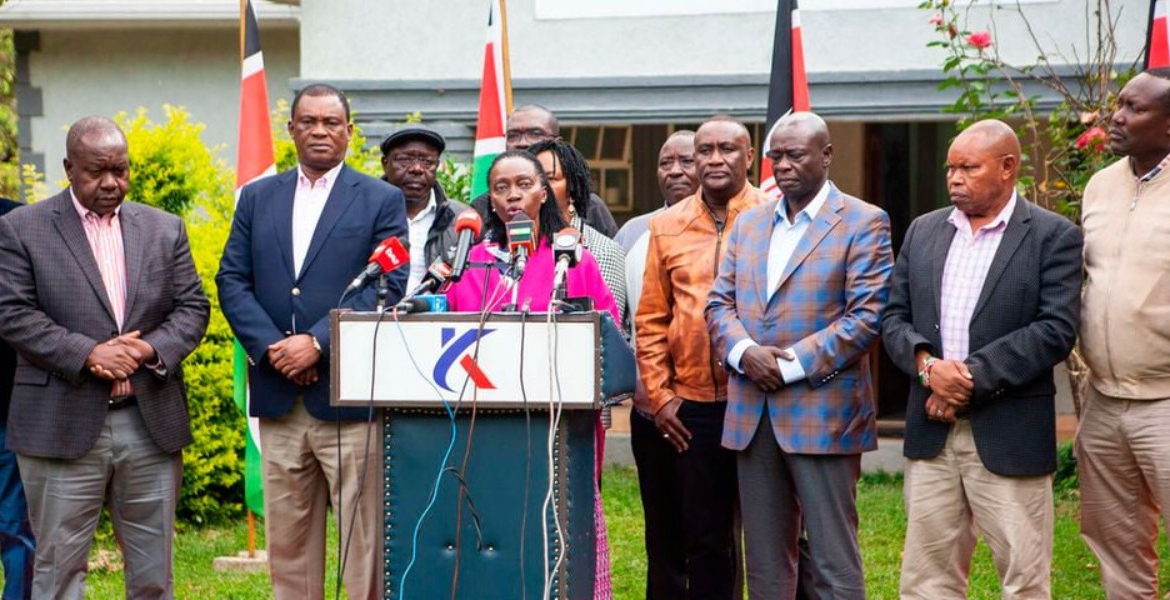
A newly formed coalition of Kenyan opposition leaders, the United Opposition, has ignited a renewed wave of political resistance against President William Ruto’s administration.
Employing tactics reminiscent of veteran opposition leader Raila Odinga's past movements, the alliance has swiftly launched a campaign encompassing civil resistance, economic boycotts, and legal challenges, with the stated aim of galvanising public support for systemic change. The coalition's emergence heralds a significant shift in Kenya’s political dynamics, uniting prominent figures from diverse political backgrounds. Central to the coalition is the revival of protest strategies pioneered by Mr Odinga, including mass demonstrations and public denunciations.
Demonstrations have already erupted in key urban centres such as Nairobi and towns across the Mt Kenya region, drawing thousands of participants who voice their dissent against the current governance. Rigathi Gachagua, former Deputy President and a leading figure in the United Opposition, announced plans on Wednesday to petition international institutions, including the International Criminal Court (ICC), to investigate alleged state violence during recent protests. His declaration echoes previous appeals made by Mr Odinga to global justice mechanisms during periods of state crackdowns.
"We will be writing to the ICC and other international institutions to document these atrocities. This regime has turned against its own people," Mr Gachagua said, signalling the coalition's intent to pursue legal avenues both domestically and internationally.
Alongside civil mobilisation, the United Opposition is leaning heavily into economic resistance. A proposed boycott targeting businesses perceived to be aligned with the Kenya Kwanza administration is in motion. The group plans to release a "list of shame," crowdsourced from citizens, naming companies allegedly benefiting from political patronage. Opposition figures argue that these tactics are necessary to disrupt what they describe as a network of regime enablers. Dr Mukhisa Kituyi, speaking on behalf of the coalition, asserted that tolerating state violence is no longer an option.
"2027 is too far. We cannot allow another day of unchecked killings, another week of a security system resembling colonial repression," he said.
President Ruto, in a sharp rebuttal, accused the opposition of plotting unlawful regime change through incitement and unrest. "They have said they won’t wait for 2027 to vote. That they plan violence to overthrow the Government. I dare them to try," he declared.
His comments were echoed by government allies who have labelled the opposition’s campaign as reckless and destabilising. National Assembly Majority Leader Kimani Ichung’wah criticised the proposed boycotts as economic sabotage, drawing parallels to the looting witnessed in recent demonstrations. He contended that efforts to collapse the economy for political gain undermine responsible governance and inflict harm on ordinary citizens. Yet opposition leaders maintain that their actions are a response to systemic failures, including burdensome taxation, entrenched impunity, and escalating police aggression.
Beyond national borders, the coalition is extending its campaign through diaspora networks in the United Kingdom and the United States. These international forums aim to frame Kenya’s domestic governance crisis as an issue of global concern, drawing on foreign civil society actors and advocacy groups to amplify pressure on the Ruto administration. The use of transnational lobbying reflects a broader understanding of political accountability in the age of global interconnectedness.
The alliance brings together six political parties: Democracy for the Citizens Party (led by former Deputy President Rigathi Gachagua), Wiper (led by Kalonzo Musyoka), the People’s Liberation Party (led by Martha Karua), Democratic Action Party-Kenya (led by Eugene Wamalwa), the Democratic Party (led by Justin Muturi), and Jubilee Party (represented by chairman Torome Saitoti and supported by former Cabinet Secretary Fred Matiang’i).
The formation of the People’s Restoration Justice Commission (PRJC) seeks to document human rights violations and present evidence to both national and international legal authorities. This commission is expected to play a central role in the alliance’s legal strategy, particularly in prosecuting individuals implicated in police brutality and extrajudicial killings.
Despite its vigorous mobilising efforts, the United Opposition faces questions around its coherence and future direction. Analysts have noted that while the coalition is unified in opposition to the current regime, its long-term policy framework remains vague.
"What we are seeing is not a united vision—it’s a shared anger," observed political analyst Javas Bigambo. "Without a forward-looking policy agenda, it risks becoming a union of vengeance."
This lack of ideological clarity could pose challenges to sustaining momentum and translating popular discontent into lasting political reform. The coalition’s demographic composition has also sparked debate, with critics pointing to the absence of youth representation in its public leadership. Given that much of the current protest energy has been driven by Gen Z activists and young professionals, the alliance’s reliance on veteran politicians may limit its appeal among younger constituencies.
Nonetheless, the sheer scale of its political realignment suggests a growing appetite for alternative leadership, especially within communities disillusioned by the status quo. Rigathi Gachagua’s dramatic shift from government loyalist to opposition firebrand is emblematic of the broader transformations underway. His partnership with figures such as Kalonzo Musyoka, Martha Karua, Eugene Wamalwa, and Fred Matiang’i invokes memories of past resistance movements, notably the Nasa and Azimio coalitions.
A senior aide within the opposition encapsulated the mood, saying, “We are where Raila was in 2007. The people are angry. The mountain is bleeding. We can’t remain silent.”

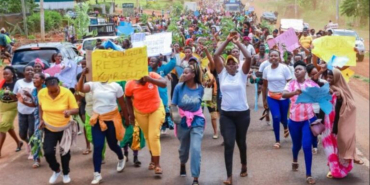
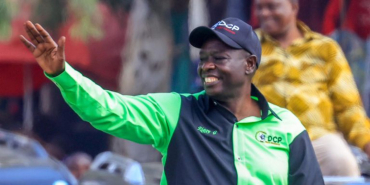
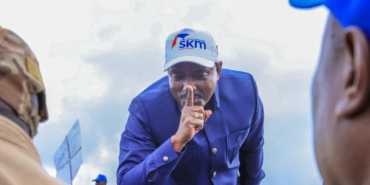
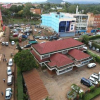


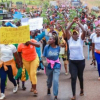
Add new comment